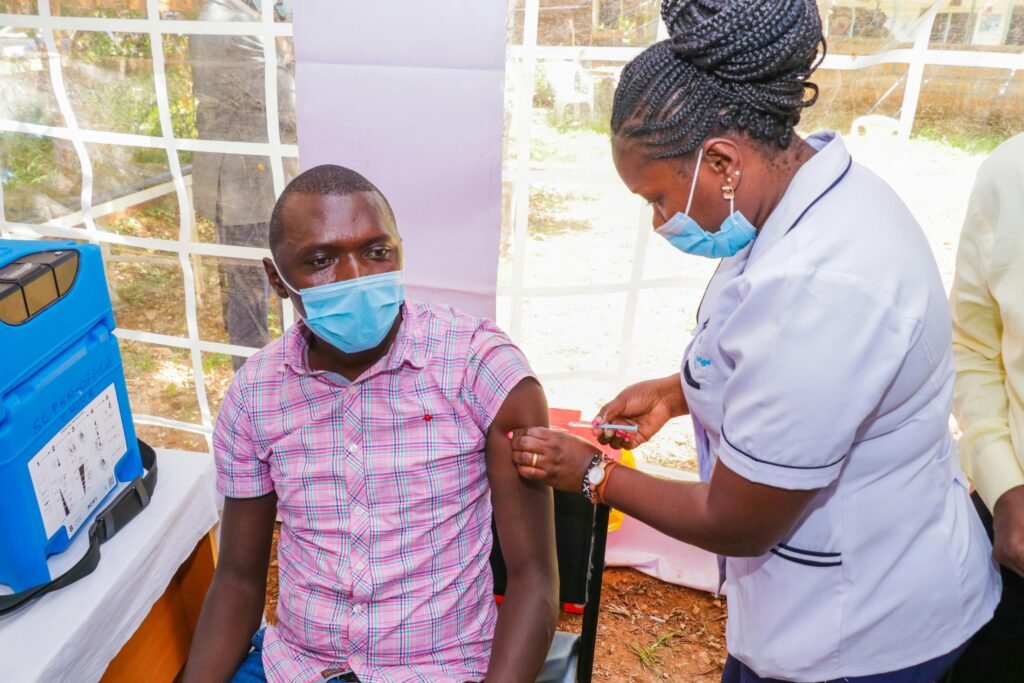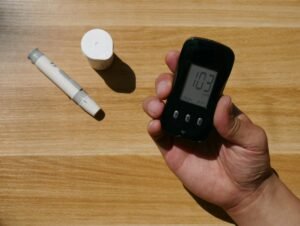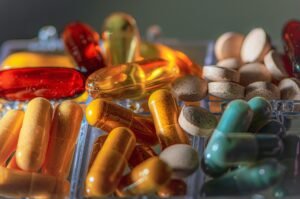Products
- A
- B
- C
- D
- E
- F
- G
- H
- I
- J
- K
- L
- M
- N
- O
- P
- Q
- R
- S
- T
- U
- V
- W
- X
- Y
- Z
Our products portfolio is made up of pharmaceutical products, non-pharmaceutical products and veterinary pharmaceuticals
Speciality medicine
Our portfolio of specialty generic medicines prevent and treat diseases from HIV to respiratory diseases, immune-mediated conditions like lupus, and cancer. Many are of best-in-class. Our specialty medicines are focused on therapeutic areas like: Neuroscience, Cardiovascular, Anti-infectives, Anti-inflammatory, , Respiratory and Oncology among others.
Antidepressants: Treat depression and other mood disorders by affecting brain chemicals.
Antipsychotics: Manage symptoms of psychosis, such as hallucinations and delusions, in schizophrenia and bipolar disorder.
Anxiolytics: Relieve anxiety symptoms like nervousness, restlessness, and worry.
Anticonvulsants: Control seizures arising from abnormal electrical activity in the brain.
Analgesics: Relieve pain, with various mechanisms of action depending on the type (e.g., opioids, nonsteroidal anti-inflammatory drugs (NSAIDs)
These are drugs that affects the function of the heart and blood vessels.
ACE inhibitors , Angiotensin-II antagonists, Beta-blockers , Calcium-channel blockers – Losartan, Amlodipine, Valsartan, Atenolol, Carvedilol etc
Anti-arrhythmic medicines like Amiodarone, Propafenine, Quinidine, Flecainide etc
Anticoagulant medicines like Warfarin, Dabigatran, Rivaroxaban, Apixaban etc (Note: if it is not fitting the space, give ‘read more’ option)
Anti-platelet medicines like Aspirin, Clopidogrel, Ticagrelor, Prasugel, Silostadol, Dipridamole.
Cholesterol-lowering medicines like Simvastatin, Atorvastatin and other statins
Diuretics (water pills) like Thiazide and Nitrates like Nitroglycerin(GTN), Isosorbide mononitrate(ISMN)
Antibiotics: Treat bacterial infections by killing bacteria or stop their growth, medications include Levofloxacin, Tetracyclic, Amoxicillin etc
Antifungal: Treat fungal infections by killing fungus or stop their growth, medications include Ketoconazole, Fluconazole, Clotrimazole.
Antivirals: Treat viral infections by killing fungus or stop their growth, medications include Tenofovir, Oseltamivir, Oseltamivir, Entecavir etc
Antacids: Neutralize stomach acid to treat heartburn and indigestion. Example: Pantoprazole, Omeprazole, Lansoprazole etc.
Antidiarrheal medications: Reduce diarrhoea symptoms.
Laxatives: Promote bowel movements to treat constipation. Example; Senna, Lactulose.
ANTIDIABETIC MEDICATIONS: Help control blood sugar levels in diabetes. There are many different types with various mechanisms of action.
Insulin: Includes rapid acting insulins, long acting insulins and premixed insulins.
Biguanides: Metformin-which reduces glucose production in the liver and improve insulin sensitivity.
Sulfonylureas: These stimulate the pancreas to produce more insulin. Example include glipizide and glyburide.
Thiazolidinediones(TZDs): These improve insulin sensitivity. Example include pioglitazone and rosiglitazone.
DPP-4 : These help increase insulin release and decrease glucagon level. Example include sitagliptin and saxogliptin.
SGLT-2 inhibitors: These help the kidneys remove glucose from the bloodstream. Example include dapagliflozin and canagloflozin.
GLP-1 Receptor Agonist: These enhance insulin secretion and inhibit glucagon release. Example include exenatide and liraglutide.
THYROID HORMONES: Replace or regulate thyroid hormone production for hypothyroidism.
Hypothyroidism: Levothyroxine(T4) is the synthetic form of thyroxine.
Hyperthyroidism: Methimazole, a medication which inhibits thyroid hormone synthasis.
Antihistamines: These relieve allergy symptoms such as sneezing, runny nose, itchy eyes, and hives.
Mast cell stabilizers: Prevent the release of inflammatory chemicals from mast cells, helpful in allergies.
Chemotherapy: These medications kill cancer cells or stop their growth. There are many different chemotherapy drugs, each with its own mechanism of action.
Targeted therapy: These drugs target specific molecules or pathways involved in cancer cell growth and survival. They are often more precise than chemotherapy and may have fewer side effects.
Immunotherapy: These medications help the body’s immune system recognize and attack cancer cells. There are several different types of immunotherapy drugs.
Hormonal therapy: These medications block the hormones that some cancers need to grow.
General medicines are usually prescribed in primary care or community settings by general healthcare practitioners. General medicines are ranging from our inhaled medicines for asthma and COPD to antibiotics and medicines for skin diseases.
Topical Corticosteroids: Anti-inflammatory creams or ointments used to reduce redness, swelling, and itching, prescribed for conditions like eczema and psoriasis.
Topical Antihistamines: These creams or lotions help relieve itching caused by allergic reactions.
Topical Antifungals: These medications treat fungal infections like athlete’s foot, ringworm, and jock itch.
Topical Antibiotics: These are used to treat bacterial skin infections.
Oral Medications: For more severe skin conditions, oral medications like corticosteroids, retinoids, or immunosuppressants may be prescribed.

Vaccines
The best time to stop a virus or bacterium is before it can infect someone. Vaccines can give your body way to identify an infecting agent, and instructions on how to defeat it—and potentially, avoid infecting others.
The human body is constantly dealing with invaders. Most of the time they’re detected and destroyed before they can do any harm.
Read more
But there are times when it’s not a fair fight.
Vaccines work by preparing the body’s immune system with a defence against the pathogen. The virus or bacterium is recognized, neutralized, and destroyed, often before it can spread. We manufacture biosimilars of many of the vaccines available today, which include biosimilars of;
PCV 13:, PCV 15, PCV 20 and PPSV 23: Prevents pneumococcal diseases, including pneumonia, meningitis, and bloodstream infections.
Rotavirus: Protects against rotavirus gastroenteritis, a common cause of severe diarrhoea in infants and young children.
Varicella: Protects against chickenpox.
Flu shot: Recommended annually to protect against influenza.
HPV vaccine: Recommended for both males and females to prevent human papillomavirus infection, which can lead to cancer.
Hepatitis A and B: Protects against liver infections.
Meningococcal: Protects against meningococcal disease, which can cause meningitis and bloodstream infections.
Pneumococcal: Prevent infections caused by bacterium streptococcus pneumoniae.
Consumer healthcare
These products play a crucial role in maintaining health and well-being. They can help prevent diseases, manage chronic conditions, and improve quality of life. They are often used as alternatives or complements to pharmaceutical treatments.
Good nutrition and intake of certain vitamins, minerals, micronutrients and herbal extracts reduce the number of medical events, lower the risk of infections and strengthen the immune system; and could even impede the development of some chronic diseases.
Our supplement products help you in your journey to a healthier life. This information is provided as tips and not meant to take the place of advice from healthcare professionals.
Vitamin D: Often taken to support bone health and immune function, especially for individuals with limited sun exposure.
Omega-3 fatty acids: Found in fish oil supplements, they are beneficial for heart health, brain function, and reducing inflammation.
Probiotics: These supplements contain beneficial bacteria to support gut health and digestion.
Multivitamins: These contain a combination of essential vitamins and minerals to supplement any gaps in one’s diet.
Calcium: Often taken for bone health and muscle function, especially for those at risk of deficiency.
Iron: Commonly recommended for individuals with iron deficiency anaemia or those at risk of deficiency, such as pregnant women.
Items used for personal hygiene and care.
Skin care: Cleansers, Moisturizers, Sun screens, serums
Oral care: Tooth pastes, Mouth wash, Dental lotions, Dental floss
Hair care: Shampoos, conditioners, Hair masks, Hair serums, Oils
Bath & Body care: Soaps, Body wash
Instruments or apparatus used for medical purposes.
Blood glucose monitors
blood pressure monitors
Inhalers
Injection instruments
diagnostic detection
Skin & wound care
Medical disposables

Veterinary pharmaceuticals
We offer products for livestock and companion animals in different pharmaceutical forms: oral solutions, powders, tablets and injectable solutions.
Prescription medications: Antibiotics, Antiparasitics, Anti-inflammatory drugs.
Over the counter (OTC)medication: Flea and Tick treatments, Dewormers, Nutritional suppliments.
Vaccines: Core vaccine for dogs, Core vaccine for cats,
Biologics and biosimilars: Monoclonal antibodies, Probiotics.




